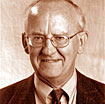Commentary on Judges 4:1-7
Women’s Work
Judges 4:1-7 introduces two biblical chapters which focus on Deborah, in the form of a story (4) and a song (5). These materials are interesting for a number of reasons.
First, this is the only text from the Book of Judges to be listed in the Revised Common Lectionary. Second, Deborah is the only one of the “judges” who is a woman (though she apparently multi-tasks; she is also identified as a “prophetess” and a wife, 4:4). Third, the “Song of Deborah” in chapter 5 has long been recognized as one of the oldest poems in the entire Bible. Finally, while other judges have their failures as well as successes (Gideon tended toward idolatry, 8:27, Samson was a womanizer), the biblical judgment on Deborah is uniformly positive, identifying there as a “mother in Israel” (5:7).
The Book of Judges and the Deuteronomic Historical Work
The Book of Judges is a collection of stories about heroes from the early days of Israel’s history, between about 1200 and 1050 BCE. These tales were told in families and clans, in the villages and in the towns, at rest areas on the trails (Judges 5:10-11). Finally the stories were incorporated into a long historical work (the Deuteronomic Historical Work) running from Deuteronomy through 2 Kings (except for Ruth), during the time of the exile in Babylon. The purpose of the Deuteronomic Historical Work was to address the questions of the exiles who asked, “Has God forsaken and forgotten us?” (see Isaiah 40:27; 4:14; Psalm 137).
The stories of the Judges are fitted into a four-part pattern; the Othniel material provides an example: 1. The people forsake their God ( Judges 3:7); 2. The Lord allows enemies to attack them (3:8); 3.The people cry to the Lord for help (3:9); 3. The Lord sends a judge to deliver them and things get back to a normal peaceful situation (3:9-10).
We could imagine the situation for these stories about the Judges in the Deuteronomic Historical Work work. The people are in exile and need to understand that God has not forsaken them, but they have forsaken God. They also needed to hear a message of God’s continuing love. These stories tell the exiles to pray, and their loving God will hear their prayers and send another deliverer. God has done it before (see each of the stories of the Judges) and God will do it again! Such was the message of the Deuteronomic history work, of which the book of Judges is a part.
The Text in its Context: Judges 4-5
Judges 4:1-7 should be understood in the context of the material about Deborah in Judges 4-5. The geographical setting for the story is easily located: Hazor is city to the north of the Sea of Chinnereth (“Sea of Galilee” in the New Testament). The location of Harosheth ha-goiim has not been identified. Bethel, where Deborah lived, is about 20 miles north of Jerusalem “in the hill country of Ephraim” (4:5). Mount Tabor is just to the southwest of the Sea of Chinnereth.
The editor who put the Deborah material together begins by fitting the story into the four-part framework of the DH as described above: 1. After the death of Ehud, the Israelites once again do what was evil in God’s sight (4:1). 2. The Lord responds by giving them over to slavery under in King Jabin of the Canaanite city of Hazor (4:2). 3. The Israelites cry to the Lord for help (4:3). 4. The Lord responds to this cry by sending a deliverer, a judge named Deborah (4:4-24, prose account; 5:1-31 song) and there is a time of peace (5:31).
The Story in 4:1-7
We first meet Deborah as she is seated in the shade of a palm tree in the hill country, going about her work as a “judge” settling disputes among her people. But the story picks up as Deborah puts on her prophet’s hat and brings a word from the Lord. She summons a certain Barak, from the territory of Naphtali to the north, and tells him that the Lord wants him to call out some 10,000 troops from Napthtali and Zebulun and bring them to Mount Tabor. There the Israelites will battle the Canaanites under Commander Sisera and will defeat them. Here our pericope ends.
But the story is just getting started. Barak says he’ll carry out this order from the Lord, but only if Deborah will go with him. She agrees to go but says ominously that the Canaanite commander Sisera will be humiliated in this battle. Not only will he be the loser, but he will die at the hand of a woman! (4:6-10). The remainder of Chapter 4 reports his death and Chapter 5 tells the same story, with a few variations, in the form of a song.
4:1-7 in Preaching and Teaching
While a number of themes suggest themselves as one reflects on this story, an interesting and appropriate one for our time the role of women in the story and the song. It is a great misunderstanding of the biblical tradition to think that women were totally subservient to men and had no voice or role in public affairs. Deborah was a married woman. She worked as both a judge and a prophet, roles most often associated with men.
Another woman in the story is Jael, an Israelite sympathizer who took out the Canaanite commander under the subterfuge of typical mid-eastern hospitality (4:17-22; 5:24-27). And on a sad note, we see a picture that would resonate with many a mother whose son was off in battle somewhere. The mother of Commander Sisera worries, “Why is he so late in coming home?” (5:28-31)
One of the slogans floating about our churches these days is “God’s work, our hands.”
These stories remind us that those hands carrying out the work of a mighty and merciful God are women’s hands, too.

November 13, 2011